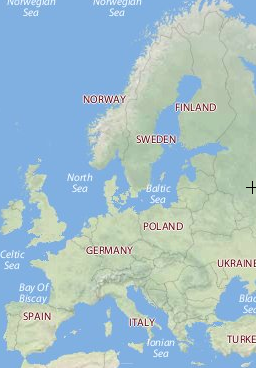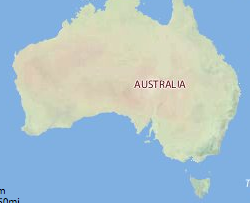The GEJI project officially ran from 2008-2012, supported by funding from the EU Commission and the Australian Government, and in close collaboration between 8 universities with a wide range of affiliates and associated partners.
After 2012, the project officially stopped. Hence, there was no longer any financial support for student scholarships, staff exchange, and project development.
However, activities and contacts have proven sustainable. The project has facilitated numerous expected and unexpected spinoffs, including continued student exchange; new projects on development of education programmes and journalism training; numerous formal and informal collaboration projects; and more.
We decided to keep this project website alive, albeit it’s no longer being updated regularly with relevant student productions.
Below and in the links, you will find descriptions of the original 2008-2012 GEJI programme.
And still – if interested in the GEJI programme, in the spinoffs or in studying at one of the partner universities – please contact us!
|
Would you like to join us? Check the offers from the 8 GEJI universities and journalism schools.    |
- – - -
GEJI is the Global Environmental Journalism Initiative.
It is a project started in 2008 by four Australian and four European universities that are leaders in journalism education in their countries.
It involves
- International collaboration in the teaching and learning of journalism about environmental sustainability.
- Students working together locally and globally to produce journalism about environmental topics.
- The building of an international archive of research materials and reports on global environmental journalism in the form of a wiki.
Project sponsors are the EU Commission and the Australian Government.
GEJI is a European Union (EU)/Australia Cooperation in Higher Education and Training project. These projects operate under the rubric of the European Commission’s Industrialised Country Instrument Education Cooperation Programme (ICI ECP) under the Education, Audiovisual and Culture Executive Agency (EACEA) and are jointly funded by the Department of Education, Employment and Workplace Relations and the European Commission.
Furthermore mobility in Europe is funded by the EU Long Life Learning Erasmus Programme and the mobility between the Nordic countries is funded by the Nordic Council of Minister’s Nordplus programme.
![]()
![]()
Project official supporters are a wide range of media organisations.
Australia
University of Technology, Sydney, New South Wales - Contact:
Monash University, Melbourne, Victoria - Contact:
Murdoch University, Perth, Western Australia – Contact: Carmelo Amalfi
University of Tasmania, Hobart – Contact:
Europe
Danish School of Media and Journalism, Aarhus, Denmark – Contacts: and
Aristotle University of Thessaloniki, Greece – Contact:
City University, London, UK – Contact:
Helsinki University, Finland – Contact:
and Sámi University College, Kautokeino, Norway – Contact:
All the partner universities offer international journalism training programs. Some of the courses are part of the GEJI project – on different topics and different levels.
Contact the international office and/or the contact persons of the GEJI partner universities about exchange possibilities. On the Partner University pages, you will find more about the individual programs offered under the GEJI umbrella.
If you are a student on one of the GEJI partner universities, you may be eligible for financial support from the GEJI exchange program. Please contact your international office, or the contact person listed.
Se partner list above.
Read more background about the GEJI project here.- and about the partner instititutions.
- – -
- About this website (gejiweb.org)GEJIweb.org is the NEWS and RESOURCES site for the GEJI project.You will find news and background stories about environmental and climate issues, mainly written by journalism students at the GEJI partner universities. We also link to stories on the partner web sites.
You will also find links to relevant resources on journalism education and the environment.
-
Lecturers, trainers, professors – mainly staff of the partner institutions.
But also students and course participants assist in the editing.
When you visit some of the related sites – like the gejiweb.org/beky or the project sites of the partner universities – students have been assigned as editors and subeditors. These sub-sites are usually related to smaller or separate training projects.
-
Mainly students and participants in our workshops.
But – actually, anyone can contribute. You may in particular write comments and link to your own blog or website – as long as it is relevant for media and other stakeholders within the sphere of journalism, environment and education. Writing comments require you to register. We do occassionaly moderate posts.
-
Course material is generally kept internally for a start. Partner staff and students can have a logon to the resources on the project intranet run by UTS Sydney. Ask your local contact person – or email Wendy Bacon at
-
We do wish to link a lot.
You bet we have plans and dreams – some of them might come true.
We plan on building a still-growing resource base, not only for journalism students but also for media and journalists working in the field of environment.
We also plan on collecting a database on other projects about environmental journalism, including possible sponsorships, scholarships, contests, awards and funding opportunities.
But – all that is for later.
-
The logo is for download here.
-
For questions related to the site, contact the . For other enquiries, contact the partner universities listed above.
Til top


Latest comments: